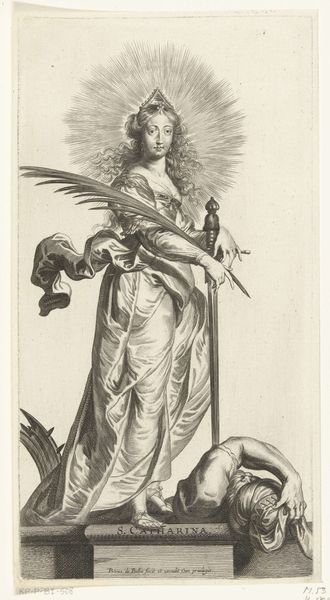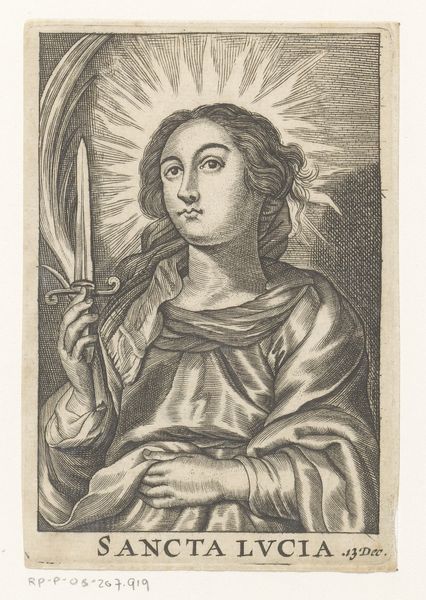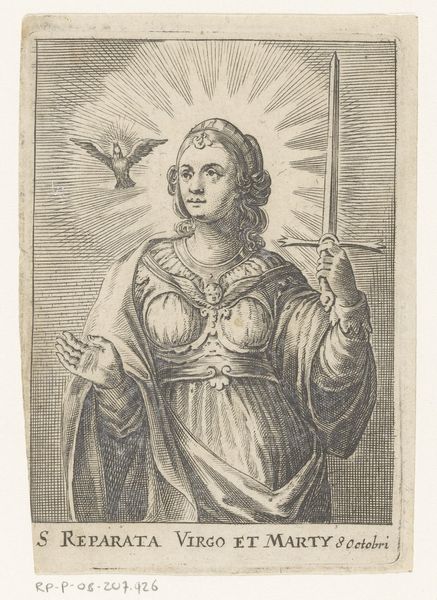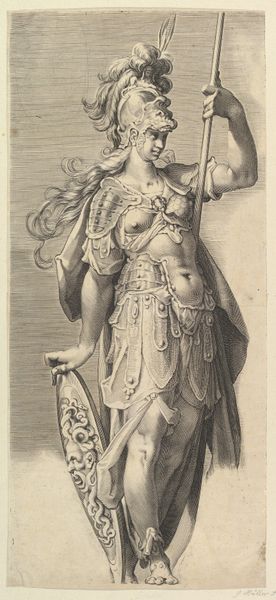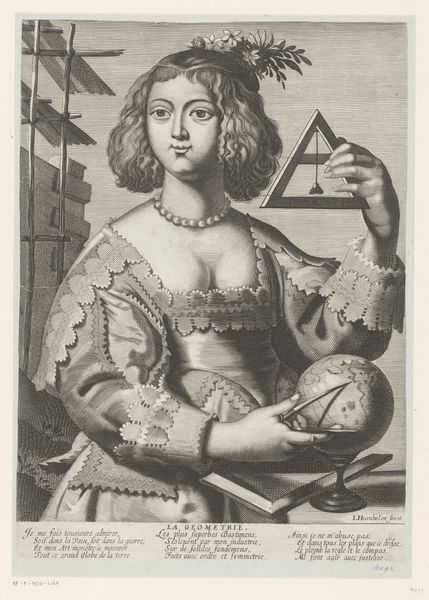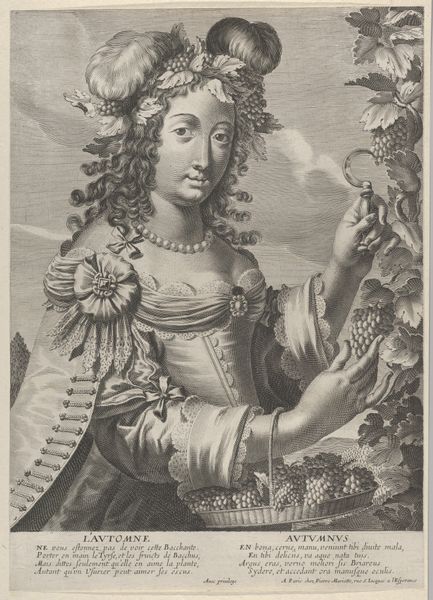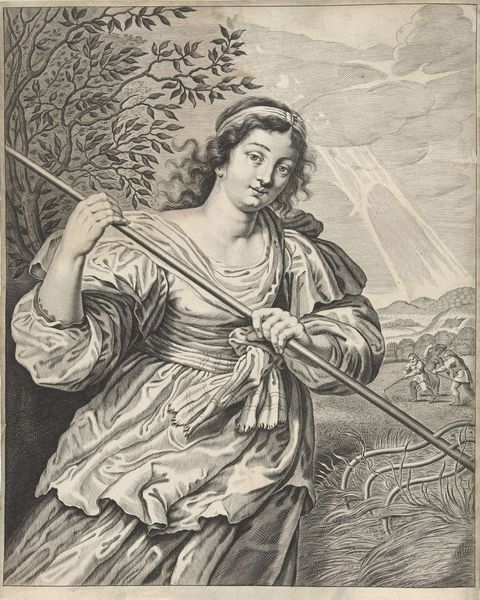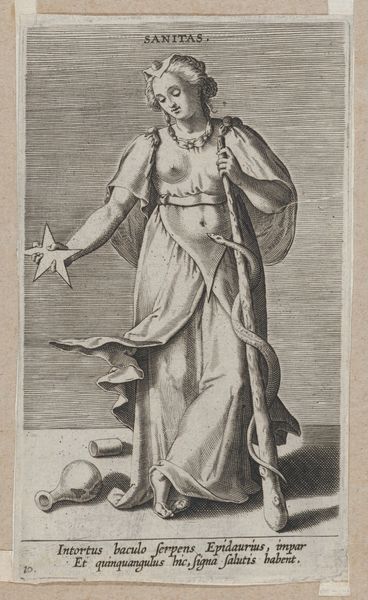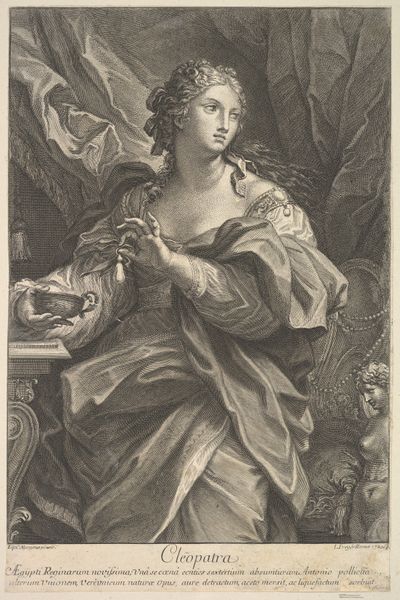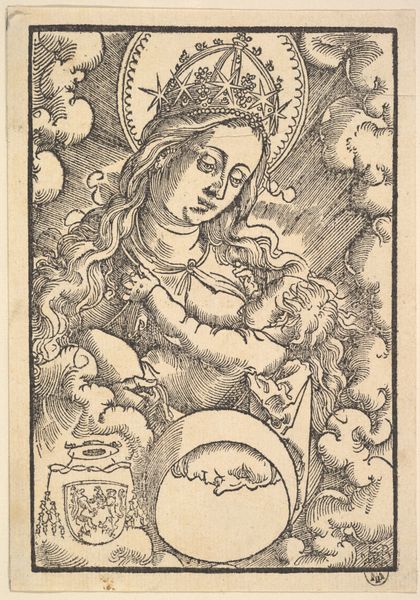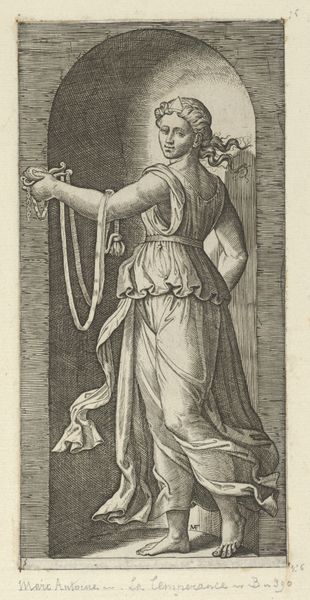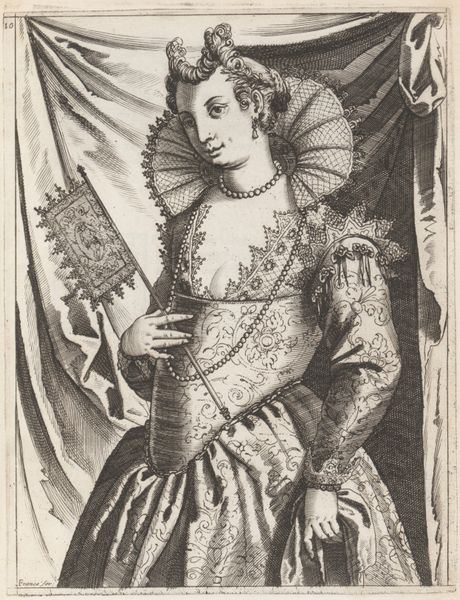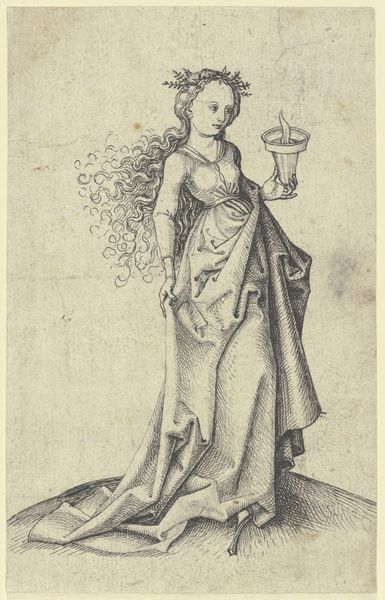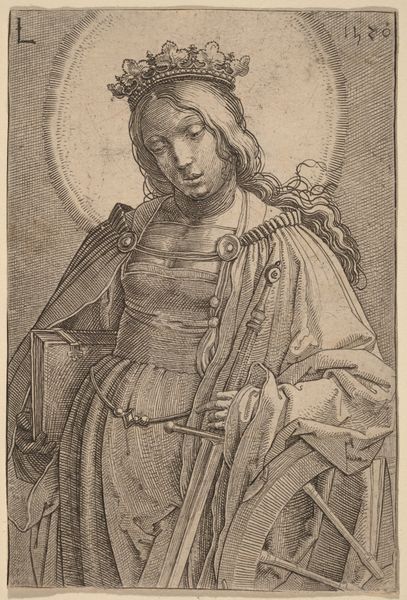
engraving
#
portrait
#
allegory
#
baroque
#
charcoal drawing
#
figuration
#
framed image
#
portrait drawing
#
history-painting
#
engraving
#
portrait art
Dimensions: height 383 mm, width 271 mm
Copyright: Rijks Museum: Open Domain
Jean Baptiste Humbelot made this engraving, Astronomia, in France in the 17th century. Here, the female allegorical figure of Astronomy is adorned with celestial motifs, including stars on her veil and dress, holding a sun-like scepter, and cradling an armillary sphere, a model of the cosmos. This work reflects the cultural interest in astrology during the Baroque era, a time when scientific and mystical worldviews coexisted. France in the 1600s was characterized by its aristocratic patronage of the arts and sciences, which Humbelot draws on here. Institutions like the French Royal Academy of Sciences, founded in 1666, formalized the pursuit of knowledge. But did this support for science challenge traditional beliefs? To understand this image better, we can delve into period texts on astronomy, astrology, and the patronage system of the French court. The social conditions that shaped Humbelot’s work reveal the complex negotiation between science, art, and power in the early modern world.
Comments
No comments
Be the first to comment and join the conversation on the ultimate creative platform.
